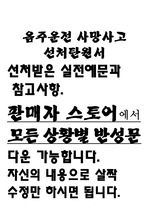A+받은 영어 소논문] BTS’s Hot Debut on American Television, New Breakthrough of ‘Hallyu’ Or Reproduction of Cultural Imperialism - As Compared with ‘Gangnam Style’ and <Train to Busan>
- 최초 등록일
- 2018.01.18
- 최종 저작일
- 2017.11
- 12페이지/
 MS 워드
MS 워드
- 가격 4,000원

목차
Ⅰ. Introduction
Ⅱ. Other Cases of Korean Culture Products Embraced by Western Culture
1. A Pop Song ‘Gangnam Style’ by Psy
2. A Film
Ⅲ. Analysis about BTS’s Debut on American Television
1. In Terms of ‘Hallyu’ in Western Cultures Including America
2. In Terms of Cultural Imperialism in the Global Market
Ⅳ. Conclusion
본문내용
This is a remarkable case in which Korean culture product including music is successfully embraced by western culture. Actually there are some similar cases in which Korean culture products have been literally ‘conveyed’ to other nations. For example, Psy’s ‘Gangnam Style’ and a film has been popular in many other countries. However, the case of BTS is unprecedented in two aspects. First, their song and choreography is not just getting popular as an ‘exotic’ foreign culture in America, but BTS is treated as a new pop star like any other national pop stars in America. Second, before the debut on America, BTS has already had big fandoms all over the world. In summary, BTS isn't being regarded as a ‘one-hit wonder’ or ‘conveyed’ foreign culture in America, but they are being regarded as an ‘invited’, rising pop star from a foreign country.
On the other hand, there are some critics who insist this phenomenon can be thought as a reproduction of cultural imperialism represented by American culture industries.
참고 자료
Hyo-Kyung Kim(2015), 「Analyzing Distorted Oriental Images in Psy's Music Videos
Based on Orientalism and Culture Industry Theory」, Journal of the Korea Entertainment Industry Association 9(1), 1-10
Songyi Lee et al.(2017),「Appropriation and recreation – The Zombies and Families in 〈The Returned - Les revenants〉 and 〈Train to Busan〉」, Academic association of global cultural contents , (26), 131-148 Ji-Hoon Park, Chul Heo(2010),「Asian Images in Hollywood Film and Television : Industrial Perspectives」, The Journal of Asiatic Studies 53(3), 171-197 Doobo Shim(2013), 「An Essay on K-pop: Korean Wave, Idols, and Modernity」, Social Studies Education 52(2), 13-28
Hyuk Jae Choi, Sung Ah Ahn(2014), 「Clustering K-Pop Hit Songs」, Review of Culture & Economy 17(1), 3-34 Sun Jung(2011), 「K-pop beyond Asia - Performing Trans-Nationality, Trans-Industriality, and Trans-Textuality」, Korean Society For Journalism And Communication Studies, 99-129



















![A+받은 영어 소논문] BTS’s Hot Debut on American Television, New Breakthrough of ‘Hallyu’ Or Reproduction of Cultural Imperialism - As Compared with ‘Gangnam Style’ and <Train to Busan>](/doc/cover/20373039/A%2B%EB%B0%9B%EC%9D%80_%EC%98%81%EC%96%B4_%EC%86%8C%EB%85%BC%EB%AC%B8__BTS%E2%80%99s_Hot_Debut_on_American.jpg)








